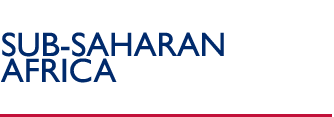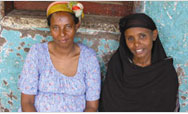Ghana
Overview
Ghana is a stable, democratic country with a free press, independent judiciary, apolitical military, and an active civil society. Over the past few years, the Government of Ghana has pursued a robust macro-economic reform agenda, which has resulted in a significant decline in inflation and poverty as well as steady gross domestic product growth. In August 2006, the Millennium Challenge Corporation signed a five-year, $547 million Compact with the Government of Ghana focused on agriculture. USAID/Ghana's program supports good governance, health, education, and economic growth.
PROGRAMS
Governing Justly And Democratically
USAID/Ghana supports Ghana's efforts to consolidate democracy by enhancing civic participation in democratic processes and ensuring that local and national governments respond to the interests of citizens. Ghana's decentralization efforts and strong citizen participation will provide the foundation required to ensure better delivery of health and education services and more opportunities for economic growth. USAID also supports efforts to improve legislative procedures, increase Parliament's access to civic input and research, and strengthen Parliament's capacity to review the national budget and debate public finance issues.
Economic Growth
USAID is increasing the competitiveness of the private sector to compete nationally, regionally, and globally; improve the enabling environment for private sector development; modernize the agricultural sector; and strengthen the private sector's capacity to produce quality agricultural and agro-processed products. USAID promotes policy reform to sustain macro-economic stability and makes markets for both produce and inputs, such as fertilizer and seeds, more efficient through trade liberalization. USAID is also promoting reforms to financial, labor, and land policies so that they enhance competition. The economic growth program provides assistance to small- and medium-sized horticultural businesses to help meet regulatory and market-driven standards and attract foreign investment. Funds generated from the sale of Food for Peace commodities (monetization proceeds) are used to support sustainable development projects, such as training in improved methods of agriculture, and micro-credit to farmers to increase rural income.
Investing In People: Health
The USAID health program empowers individuals and communities to adopt positive health practices, expand access to quality health services, and strengthen institutional capacity to plan and manage health programs. The health program provides technical and financial resources to address family planning/reproductive health, HIV/AIDS, maternal and child health, malaria, tuberculosis, improving water supply and sanitation, and other public health threats. Over the next five years, USAID's health program will move from a focus on national level improvements to bringing more health services to communities.
Investing In People: Education
USAID's education program seeks to increase the percentage of children who enroll in school, especially girls; ensure that children who complete primary school are able to read at grade level understanding; improve the management and accountability of school systems; increase community involvement in schools and education in general; and prevent HIV/AIDS in the education sector. USAID supports the establishment of complementary education centers in northern Ghana for school-age children, particularly girls, who, for varying reasons, are unable to access and participate in formal schools. USAID also provides scholarships to girls at risk of not completing their primary education. Using funds provided under the President's Africa Education Initiative, USAID helps to accelerate the acquisition of literacy by teaching pupils to read in their local language before helping them to transition to English. Under the school feeding pro-gram, girls are provided take-home food rations every month to encourage their families to continue sending them to school.
Investing In People: Social Services And Protection
The Social Assistance Program focuses attention on factors that improve the wellbeing and productivity of the most vulnerable populations in Ghana. USAID provides food items to people living with HIV/AIDS, or-phans, and other vulnerable children. USAID also organizes associations of orphans and other vulnerable groups to provide them basic care and psychosocial and/or educational support. Food for Peace resources are distributed in the three northern regions where 70 percent of the population lives on less than one U.S. dollar a day. USAID/Ghana started phasing out its food aid program in FY 2007 and will complete the process by FY 2009.
Back to Top ^
|


